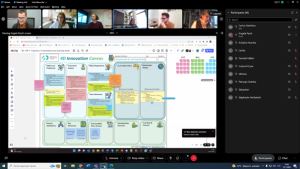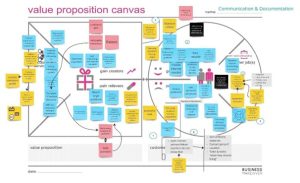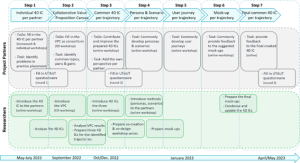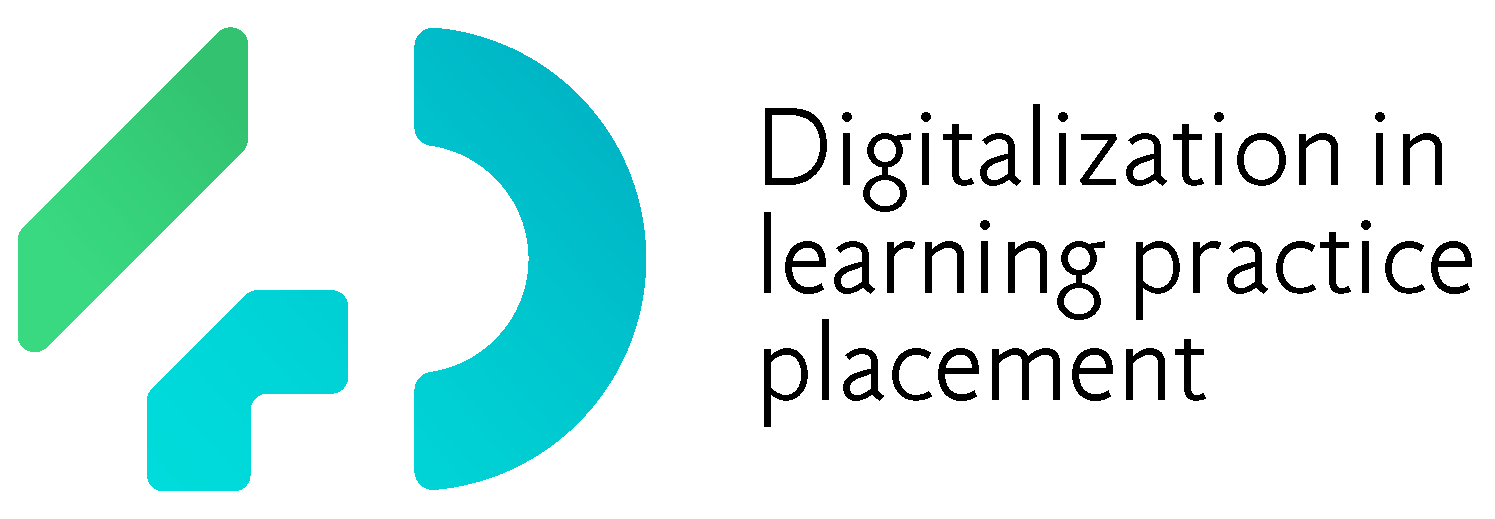🚀 The next milestone in the 4D Project journey has arrived with the launch of our eagerly awaited third report – Results. Our dedicated team from Work Package 3, composed of experts from Kubify, Graz University of Technology, the University of Twente, and TecnoCampus University, has been working over the past months, the report titled “Successful Adoption of Mobile Technology in Practice-Based Learning.”
💡 The journey leading to this report’s fruition involved rigorous effort and the meticulous organization of co-creation and co-design workshops. These workshops served as a crucible for identifying the critical components and features essential for potential mobile applications. The overarching objective of these applications is to provide support to all stakeholders engaged in practice-based student learning, offering diverse perspectives.
🔍Among the many topics explored and developed by the entire WP3 team are:
- Introducing Co-Design and Co-Creation: We have championed these methodologies as essential tools to ensure sustained active participation in the design process of educational innovations. These innovations crucially integrate technology to support practice placements.
- User-Centered Approaches: Our focus on user-centric methods and scenario-based design processes is aimed at enhancing the usability of designs within the realm of practical learning contexts.
- Learner-Centered Design: Advocating for learner-centered design in workplace learning, we aim to inspire students to embrace mobile learning in practical settings.
- Tailored Mobile Workplace Learning Technology: Our efforts have resulted in the development of mobile workplace learning technology that resonates with users’ core values and needs, fostering successful adoption in practice placements.
- Traceable Co-Design Process: We have diligently documented the co-design and co-creation process, encompassing all generated design artifacts. This approach ensures the assimilation of insights beyond their initial application in our designs.
In addition to these achievements, we are thrilled to present a comprehensive recommendations toolkit. This toolkit serves as a valuable resource, offering insights and tools cultivated throughout the 4D Project to effectively introduce mobile technology across various scenarios and contexts within higher education in EU countries. The toolkit is an open-access app, providing access to a wealth of audiovisual resources, including infographics, videos, educational materials, and training resources. Whether you are a student, healthcare professional, or an interested third party, you can explore these resources conveniently through a web platform or smartphone at https://api.ltb.io/show/ABYDG
But that’s not all! In the process of developing methodologies and tools, we’ve identified seven crucial steps elucidating the primary factors that promote digital transformation and sustainable innovation in practice placements. This rigorous process has culminated in three distinct trajectories:
- Trajectory 1: Onboarding, Communication, and Documentation.
- Trajectory 2: Reflective Practice and Feedback.
- Trajectory 3: Assessment and Learning Goals.
To conclude, our commitment to sharing knowledge and fostering innovation remains unwavering. We’re delighted to present this recommendations toolkit, enriched with the insights and tools harnessed throughout the 4D Project, making it applicable to introduce mobile technology across various scenarios and contexts.
Session 1: Innovation Canvas

Session 2: Value Proposition Canvas

Session 3: Final outcomes

Working sessions and Workshop
